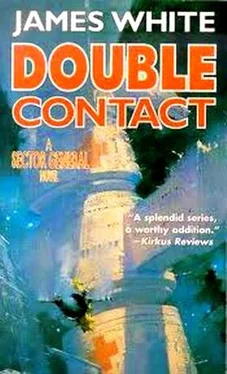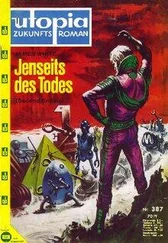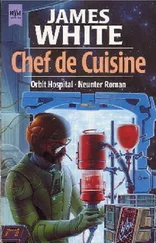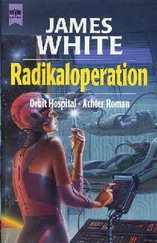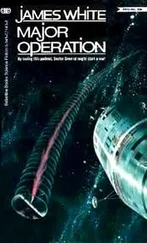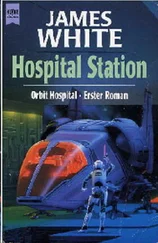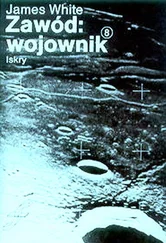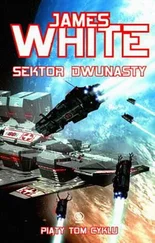“Could they be made four or five inches longer than the old ones?” asked another, and explained, “I’ve always wanted to be tall as well as handsome.”
The third made a derogatory sound that did not translate, and gradually the conversation became increasingly general, serious, and animated as Keet, Jasam, and the Terragar casualties talked about their respective futures.
When Irisik tried to join in, it was pointedly ignored. Its emotional radiation, Prilicla noted with satisfaction, was revealing a strange mixture of growing indecision and increasing certainty.
“… I know that the druul are not nice people,” one of the Terragar casualties was saying, “but the Federation won’t…”
“Not nice?” Keet broke in. “They are vicious, cunning, implacable, depraved vermin who want only to kill and, if possible, eat, everyone and everything who is not a druul. And they have been known to eat their own casualties rather than waste time and resources in treating them. They should be wiped out, exterminated down to the last member of their merciless and murderous species.”
“… As I was saying,” the Earth-human went on, “the Federation will not instruct its Monitor Corps to exterminate a whole species just on your say-so, and they know that we wouldn’t do it if they did. That would make us as uncivilized and savage as you say they are. Instead they will investigate the druul and—”
“Maybe you have sympathy, a fellow feeling towards them,” Jasam broke in, radiating sudden suspicion, “because they look so very much like you. People can give sympathy, kindness, and even affection towards pets or dolls or smaller editions of themselves. Until they turn vicious which, believe me, they will.”
“I do believe you,” said the other, “but we’re talking about an intelligent species here. We have no right to destroy them. The Federation will subject them to a covert sociological and psychological assessment. If they are as blindly antisocial as you say, they will almost certainly be isolated on their home planet to survive as best they can, fight each other to mutual extinction, or demonstrate to us over a lengthy period that they have learned sense and are on the way to true civilization, in which case we would help them as we are planning to help you.”
The two Trolanni were silent, angry, and disappointed, but their more subtle feelings were rendered unreadable because of the buildup of emotional radiation coming from Irisik. But it, too, remained silent as the Monitor Corps officer continued speaking.
“Your people will also be assessed,” it went on, “but as a technologically advanced star-traveling species, that will be a formality. Over the past century we have discovered several planets, as fresh and clean and unpolluted as this one and without indigenous intelligent life, that would suit your requirements. Considering the relatively few Trolanni remaining on your dying home world, transportation for yourselves, and your personal possessions and technical support hardware, would be no problem…”
Feelings of pride and enthusiasm suffused the words like a bright, emotional fog as it went on. “. We have Emperor-class capital ships — technically, vessels of war although they haven’t been used as such since the Etlan police action. Their beam weapons will clear large areas of ground for building and cultivation, and colonization transports and specialist officers to advise on moving your population to a new, clean world. We will help you while you are getting established, but not too much because taking over the responsibility completely would be psychologically undesirable. You might become overly dependent on us rather than independent. That’s an important part of the Federation’s first-contact philosophy. And you can forget about the druul. Unless they begin to show evidence of civilized behavior they won’t be going anywhere.”
“But wait,” said Jasam, radiating sudden worry. “You’re talking about moving a planetary population. You will need very big ships.”
“Don’t worry,” said the other, “we have big ships.”
While they had been speaking, the pressure of Irisik’s emotional radiation had been building up to the point where angry words would be its only release. Prilicla knew to the split second when it would speak.
“You are talking and behaving as if I am not here,” it said furiously. “It is not easy for me to say this, for I am a person of rank and influence among my fishing clan, but there is a possibility that I have misunderstood the situation and I wish to speak to all of you about that.”
“They may not wish to speak to you,” said Naydrad, breaking its long silence, “or even listen to you.”
The Crextic glider pilot, who was still post-operatively debilitated from its recent major surgery but was otherwise recovering well, spoke for the first time.
Slowly and weakly it said, “Irisik is the mate of our clan’s Krititkukik, our senior captain and fleet commodore. As such she is rarely placed in a position where it is necessary for her to apologize for anything, but she is trying to do so now. She is an independent, strong-willed, intelligent, and abrasive person who must be finding the process of apologizing very difficult.”
“Cloud-walker,” said Irisik sharply, “your tone lacks respect. Be quiet or, or I’ll bite your head off.”
“Promises,” said the pilot softly.
Prilicla concurred. Judging by Irisik’s emotional radiation it was finding it very difficult to apologize, but not impossible. Now was the time for him to rejoin them and, so far as the Crextic patients were concerned, start laying down Federation law and telling them the unpleasant truth — possibly more unpleasant than their earlier personal fear of being eaten — about their present situation. But the spider had come to a crucial decision, and from the dialogue that was developing and the accompanying emotional radiation, Prilicla knew what it was. He was flying slowly and happily into the recovery ward when the captain spoke urgently from the communicator.
“Doctor,” it said, “the heavies have arrived. Three Monitor Corps cruisers, the cultural contact vessel Descartes and Sector Marshal Dermod’s flagship Vespasian, no less. He has been appraised of our situation but says, regrettable as it is, that we must not risk jeopardizing the successful Trolanni contact by allowing them and our other casualties to be killed due to our bungled contact with the Crextic. The sector marshal says we must on no account sacrifice our own people and two members of an intelligent, star-traveling species. It says that it was a difficult decision but he had to make it. We are ordered to move all casualties to Rhabwar, warn off the spiders, and take off forthwith.”
Prilicla’s flight path wavered for a moment, then steadied as he said, “Right now that would be very inconvenient, friend Fletcher. Please tell the sector marshal that our second contact with the Crextic is ongoing and at a delicate stage which must not be interrupted by a hasty evacuation, and remind it that this is predominantly a medical emergency, with all that implies.”
“But, but you can’t say that, dammit,” the captain burst out. “Not to a sector marshal!”
“Be diplomatic,” said Prilicla, resuming his flight.
Prilicla flew into the recovery ward and hovered above and between the lines of patients. He was noticed but ignored. Considering the conversation that was taking place between Irisik and Keet he could live with the delay, for a while.
“… It seems that I have been completely wrong in my assessment of this situation,” Irisik was saying, “and when they learn about it the Crextic will be grateful for the healing that was done for us here. But these healers are strange creatures, not unfriendly but still frightening. I don’t know how long it would take, if ever, for us to come to like them…”
Читать дальше
